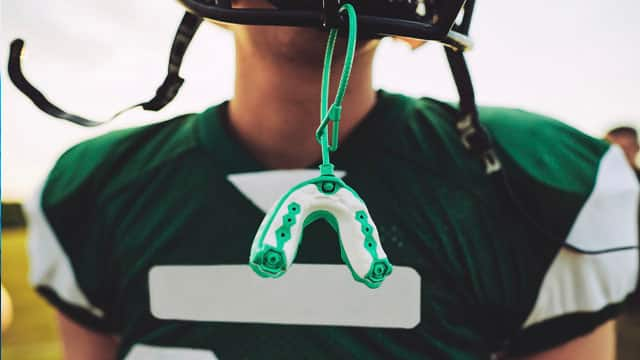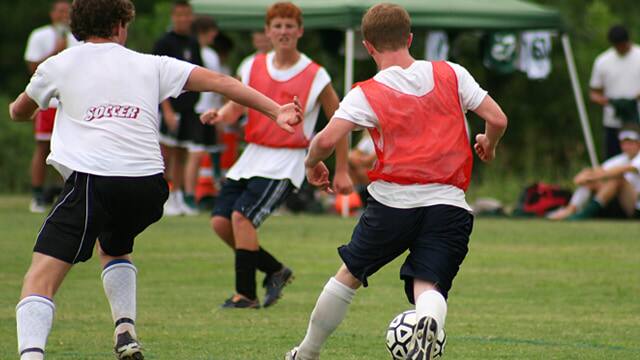What Are Mouthguards?
Mouthguards are worn over the top row of teeth during sports to help prevent an oral injury. They protect against broken teeth, cut lips, and other damage to the mouth. If your athlete wears braces or has fixed dental appliances (such as a bridge) on the lower jaw, the dentist may suggest a mouthguard for these teeth as well. Mouthguards are an essential piece of athletic equipment for anyone participating in a sport that involves falls, body contact, or flying equipment. This advice is true for team sports such as football, basketball, baseball, soccer, and hockey. A mouthguard is also needed if you're kid is into skateboarding, gymnastics, mountain biking, or basically any physical activity that might result in an injury to the mouth.
What Are The Different Types of Mouthguards?
There are three types of mouthguards. Your athlete's dental professional can help you make the right choice. At any rate, the mouthguard must be resilient, tear-resistant, and comfortable. Fit is also important. It should not restrict speech or breathing. Here are the three types of mouthguards:
Custom-made mouthguards
These are designed and made specifically for your athlete. They are produced in the dentist's office or a professional dental laboratory. Your dentist makes an impression of your teeth and then constructs the mouthguard over a model of them. Since they are custom fit, they provide the most comfort and best protection. Since they are one-of-a-kind, they are the most expensive.
Boil and bite mouthguards
These come in a pre-formed shape that can be altered. You boil the mouthguard in water, then the athlete bites into the warm plastic for a customized fit. Follow the directions carefully for the best results. You can purchase boil and bite mouth guards in sporting goods stores. These provide a better fit than stock mouth protectors.
Stock mouthguards
These are pre-formed and ready to wear. They often don't fit very well, can be bulky, and may make breathing and talking difficult. Stock mouthguards are the least expensive option.
How Often Should Mouthguards Be Replaced?
Ideally, it would be best if you replaced your mouthguard after each season because they can wear down over time, making them less effective. If you have a multiple-sport athlete, they will need a new mouthguard for each sport season. Adolescents' mouths continue to grow; frequent replacement is required. Consult your dental professional at each six-month appointment.
Mouthguards are an essential piece of equipment for your athlete, especially if they compete in a contact sport. Finding the right mouthguard is just as important as having one – after all, you want it to do an excellent job at doing its job, protecting teeth.
Oral Care Center articles are reviewed by an oral health medical professional. This information is for educational purposes only. This content is not intended to be a substitute for professional medical advice, diagnosis or treatment. Always seek the advice of your dentist, physician or other qualified healthcare provider.
ORAL HEALTH QUIZ
What's behind your smile?
Take our Oral Health assessment to get the most from your oral care routine
ORAL HEALTH QUIZ
What's behind your smile?
Take our Oral Health assessment to get the most from your oral care routine






.png)








